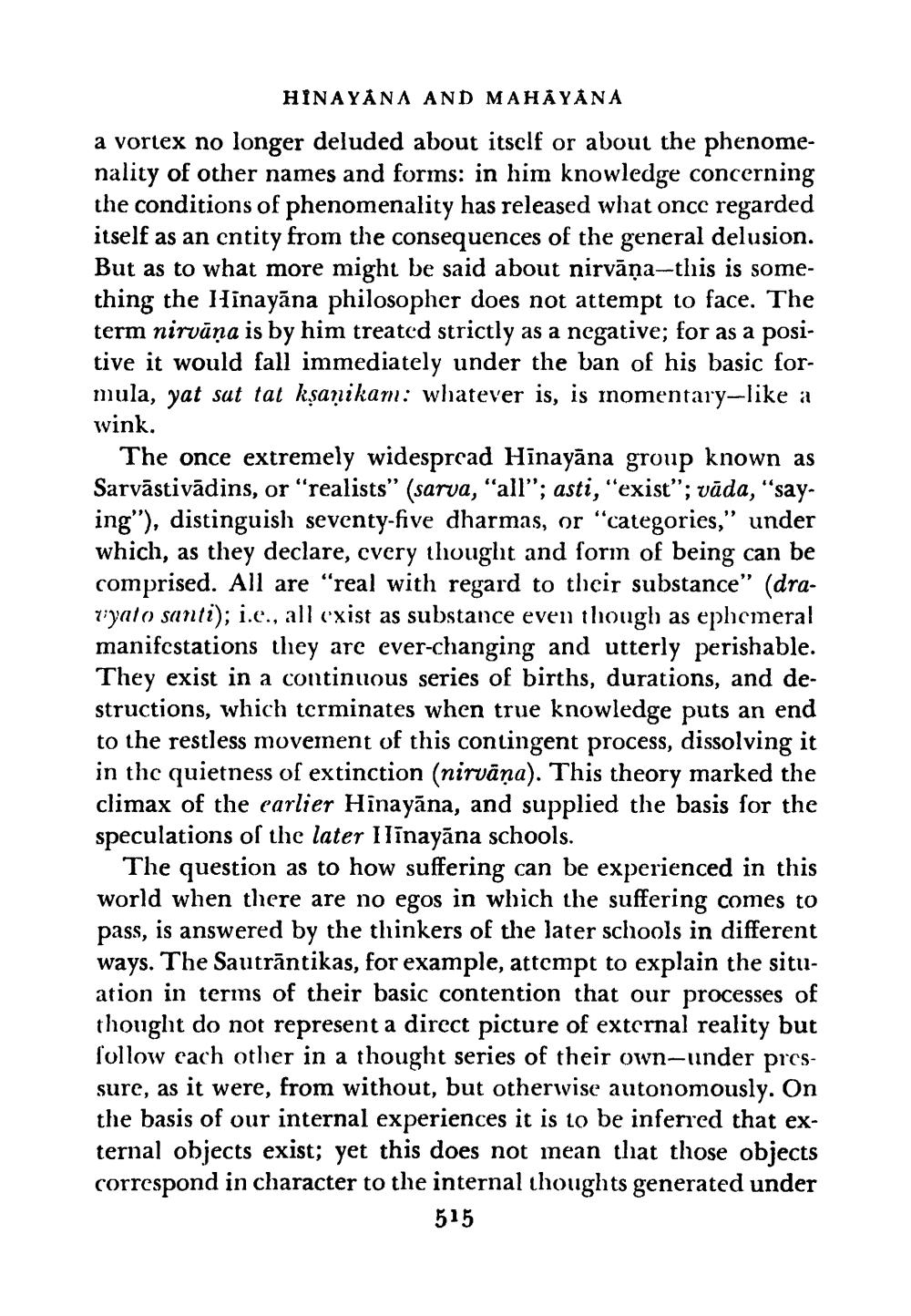________________
HINAYANA AND MAHAYANA a vortex no longer deluded about itself or about the phenomenality of other names and forms: in him knowledge concerning the conditions of phenomenality has released what once regarded itself as an entity from the consequences of the general delusion. But as to what more might be said about nirvāņa-this is something the Hinayāna philosopher does not attempt to face. The term nirvāņa is by him treated strictly as a negative; for as a positive it would fall immediately under the ban of his basic formula, yat sat tat kşaņi kam: whatever is, is momentary-like a wink.
The once extremely widespread Hinayāna group known as Sarvāstivādins, or "realists" (sarva, "all"; asti, "exist"; vāda, "saying"), distinguish seventy-five dharmas, or "categories,” under which, as they declare, cvery thought and form of being can be comprised. All are “real with regard to their substance" (dra7:yato santi); i.e., all exist as substance even though as ephemeral manifestations they are ever-changing and utterly perishable. They exist in a continuous series of births, durations, and destructions, which tcrminates when true knowledge puts an end to the restless movement of this contingent process, dissolving it in the quietness of extinction (nirvāņa). This theory marked the climax of the earlier Hinayāna, and supplied the basis for the speculations of the later Ilīnayāna schools.
The question as to how suffering can be experienced in this world when there are no egos in which the suffering comes to pass, is answered by the thinkers of the later schools in different ways. The Sautrāntikas, for example, attempt to explain the situation in terms of their basic contention that our processes of thought do not represent a direct picture of external reality but follow each other in a thought series of their own-under pressure, as it were, from without, but otherwise autonomously. On the basis of our internal experiences it is to be inferred that external objects exist; yet this does not mean that those objects correspond in character to the internal thoughts generated under
515




